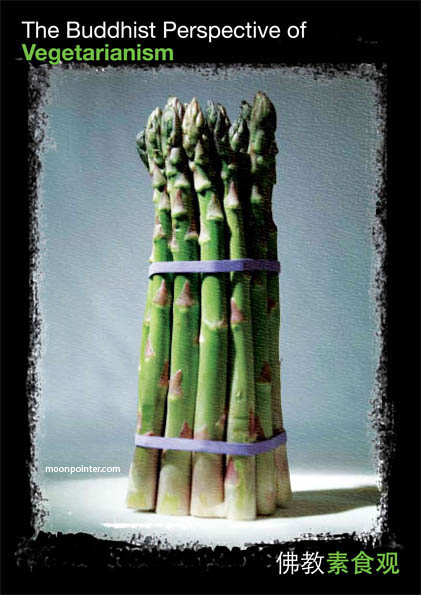
|
Tuesday, 29 January 2008 Materialism - A price to pay Among the world’s most materialistic, Singaporeans are driven to achieve, but it could also be painful for the nation and individually. By Seah Chiang Nee Nov 17, 2007 WHY are Singaporeans, among the region’s best educated, so easily conned into paying money to people they have never seen – just on the promise of a financial reward? How can anyone be persuaded to pay thousands of dollars to claim a lottery prize that in the first place they had never participated in? Or a worldly-wise businessman talked into sending a small fortune on a money laundering deal offered by some Africans half the world away whom he would probably scoff at as academically inferior to himself? Yes, hard to believe, but these examples are happening every day in this sophisticated city. In the past two months 179 lottery scams were reported. Singaporeans, either out of greed or naivety or both, are increasingly falling prey to the temptation of easy money. The latest victim was a schoolteacher in her 30s who was swindled of S$61,000 by a voice on the telephone after an hour of conversation. The all-too-familiar operation runs as follows: “You’ve won a $150,000 lottery in Hong Kong. You have to first pay $5,500 in taxes and fees.” She paid and got no joy. In several follow-up talks with the China-based syndicate, the teacher was incredibly persuaded to pay more money, which she raised by borrowing from friends and her bank. These – and other scams – had each victim poorer by anything from hundreds of dollars to S$350,000 (in one case). Why do so many get taken in? The most common cause is, of course, greed and the second, naivety – or both. To be sure, foreign scams by phone or on the Internet are a global phenomenon, and the victims not confined to Singaporeans. But being particularly materialistic, status-conscious and impatient to get rich would render Singaporeans more vulnerable than most. (A 2001 study on national identity concluded that we ranked among the most materialistic, money-obsessed people in the world.) The trait stems from a sense of Singaporeans’ insecurity, of being part of a tiny resourceless city-state with little financial safety net should they run into trouble. At best, the chase for the dollar, similar to early 20th century industrial America, could also be a driving force for enterprise and achievement. In fact, it has largely been responsible for turning a squalid Singapore into today’s prosperous nation. Time means money, so we’re always in a hurry – acting fast, talking fast, even playing fast. Singaporeans are now walking as fast as the people in Hong Kong. We run up an ascending escalator just to save time, and impatiently push the lift button several times in a ridiculous habit to make it, as many hope, move faster. With its relentless economic pursuit, the government sets the pace by pushing people to be individualistic and self-reliant (“there’s no free lunch” or “no bail-out for failures”), which has developed into some not-so-pretty traits. Materialism has come to dominate many lives, spawning an unacceptable level of greed, arrogance and selfishness. This extreme pursuit (some call us “economic animals”) is contributing to a decline in collective morality, even as people become more educated and globalised. There are more corporate shenanigans and charity bodies being investigated nowadays; on the rise are job scams and elderly folk being mugged. The late David Marshall once accused the People’s Action Party government of turning Singaporeans into “successful crooks”. A new China immigrant from Shenzhen recently wrote on the Internet of his five-month stay here, and of his shock at finding a Singapore so vastly different from the “nice” place he had heard about. “Everyone here seems to be crazy about money. “Why is this happening here? Back in China, we are also concerned about money, but not like this; every other thing is about money here,” he commented. “In the office, people are always talking about 4-D, en bloc property, shares or higher salaries. There was also an idiot who blew S$2,000 on a soccer match last week. That’s a lot of money to lose in a single day. “I know of two girls in my office who moonlight as insurance agents and sleep around with clients. All that for money.” To be fair, the preoccupation with quick profit prevails also in today’s China, and among the Chinese diaspora. Greed and the lure of easy winnings are the main reasons why the world’s casino operators love Asia – Singapore in particular – and want to set up operations in the region. It has more young people willing to take risks that their forefathers would probably shun, either as initiators – or victims – of get-rich-quick businesses. The recent spate has prompted the Monetary Authority of Singapore to issue a warning to consumers to be extremely wary of unregulated get-rich-quick schemes. It said the number of such unlicensed outfits offering rapid financial returns had ballooned from 25 to 95 over the past three years. The trait has long worried the government. In 2001, a committee to remake Singapore had suggested correcting “the shallowly materialistic credo that may dominate lives here.” The then Prime Minister Goh Chok Tong said in 1997: “Singaporeans cannot just be materialistic, self-centred and impatient to get rich quick.” He suggested creating a more “gracious society”, something that could take a very long time. (This was published in The Star, Malaysia on Nov 17, 2007) dreamed of racing on 10:57 pm <-------------------------------------------------------> |
Racer: zfek 
一份情讓我們相知相惜 一份真摯的友誼,使我們成為永遠的朋友
                                      
 stare at the blank + in the center, what do you see?  do you see the dancer turning clockwise or anti-clockwise? "There are some people who meet that somebody that they can never stop loving, no matter how hard they try. I wouldn't expect you to understand that, or even believe it, but trust me; there are just some loves that don't go away. And maybe that makes them crazy, but we should all be lucky enough to end up with someone who has a little bit of that craziness. Someone who never lets go. Someone who cherishes you forever." - Ally McBeal unique moonlighters |
0 Comments:
Post a Comment
<< Home